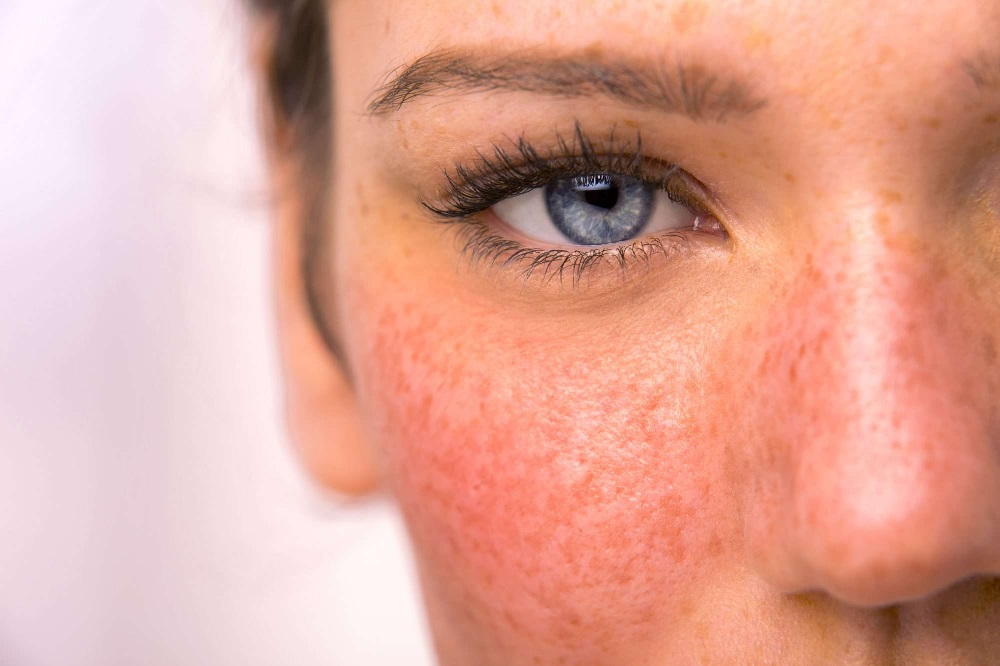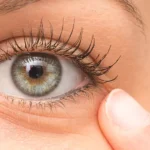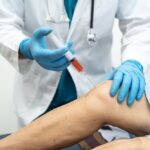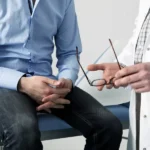Find Relief with Gentle Rosacea Treatment
Rosacea, a chronic skin condition, often causes persistent redness, visible blood vessels, and sometimes, small, red, pus-filled bumps on the face. It primarily affects middle-aged women with fair skin, though it can occur in anyone. Understanding the nuances of this condition and exploring effective, gentle treatments is crucial for those seeking relief.
Understanding Rosacea: More Than Just Redness
Rosacea manifests in various forms, ranging from facial redness to swollen, red bumps that can be mistaken for acne. The condition can also cause eye problems like dryness and irritation, known as ocular rosacea. Unlike temporary skin flushing, rosacea symptoms persist and often worsen without treatment.
Causes of Rosacea
The exact cause of rosacea remains unknown, but several factors contribute to its development. These include genetic predisposition, environmental triggers, and immune system abnormalities. Identifying and managing these triggers can significantly improve the quality of life for individuals with rosacea.
Genetic Predisposition
Research suggests a strong genetic component to rosacea. Those with a family history of the condition are more likely to develop it. Genetic factors can influence the skin’s vascular response, leading to the characteristic redness and inflammation associated with rosacea.
Environmental Triggers
Environmental factors play a significant role in rosacea flare-ups. Common triggers include sun exposure, extreme temperatures, wind, and humidity. Additionally, lifestyle factors such as stress, alcohol consumption, spicy foods, and certain skincare products can exacerbate symptoms. Identifying and avoiding these triggers is essential in managing rosacea.
Immune System Abnormalities
An abnormal immune response is another contributing factor to rosacea. Some studies suggest that individuals with rosacea have a heightened immune response to certain microorganisms, such as Demodex mites, which are naturally present on the skin. This overreaction leads to inflammation and the visible symptoms of rosacea.
Effective Non-Surgical Rosacea Treatments
Managing rosacea requires a multifaceted approach, including lifestyle modifications, topical treatments, and advanced non-surgical therapies. Here, we explore some of the most effective rosacea treatments in Singapore that provide relief without the need for invasive procedures.
Topical Treatments
Topical medications are often the first line of defense in rosacea treatment. Metronidazole, azelaic acid, and ivermectin are commonly prescribed to reduce inflammation and bacterial count on the skin. These treatments can help diminish redness, swelling, and the formation of pustules.
Oral Medications
For more severe cases, oral antibiotics like doxycycline and minocycline can be prescribed. These medications not only target bacterial infection but also possess anti-inflammatory properties that help control rosacea symptoms. In certain cases, low-dose isotretinoin is recommended to reduce oil gland activity and inflammation.
Laser and Light-Based Therapies
Laser and light-based treatments offer significant benefits for rosacea patients by targeting visible blood vessels and reducing redness. Intense Pulsed Light (IPL) therapy and pulsed dye lasers (PDL) are popular choices in rosacea treatment in Singapore. These therapies use specific wavelengths of light to constrict blood vessels, diminishing their appearance and alleviating redness.
Innovative Treatments: Sylfirm X
Sylfirm X is an advanced, non-invasive treatment option gaining popularity for its effectiveness in treating rosacea. This innovative technology combines radiofrequency and microneedling to target the underlying causes of rosacea. Sylfirm X stimulates collagen production and improves skin texture, reducing redness and inflammation over time. It’s a gentle yet powerful option for those seeking significant improvement without the downtime associated with more invasive procedures.
Lifestyle Modifications for Rosacea Management
In addition to medical treatments, incorporating lifestyle changes can substantially improve rosacea symptoms. Here are some practical tips:
Sun Protection
Sun exposure is a well-known trigger for rosacea. Using a broad-spectrum sunscreen with an SPF of 30 or higher, wearing protective clothing, and seeking shade can help prevent flare-ups.
Gentle Skincare Routine
Choosing skincare products designed for sensitive skin is crucial. Avoiding harsh exfoliants, alcohol-based products, and fragrances can reduce irritation. Opt for gentle cleansers and moisturizers that soothe and protect the skin barrier.
Dietary Adjustments
Certain foods and beverages can trigger rosacea symptoms. Spicy foods, hot drinks, and alcohol are common culprits. Keeping a food diary can help identify personal triggers and allow for dietary adjustments that minimize flare-ups.
What to Remember
Rosacea is a chronic condition that requires ongoing management. Understanding the triggers, incorporating lifestyle changes, and seeking professional medical advice are essential steps in finding relief. For those looking for advanced treatment options, considering rosacea treatment in Singapore, including innovative solutions like Sylfirm X, can provide significant improvement.
Managing rosacea involves a comprehensive approach tailored to individual needs. By combining medical treatments with practical lifestyle modifications, it’s possible to achieve clearer, healthier skin and improve overall quality of life.











